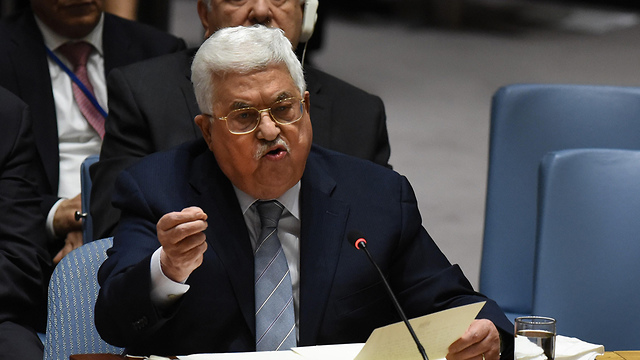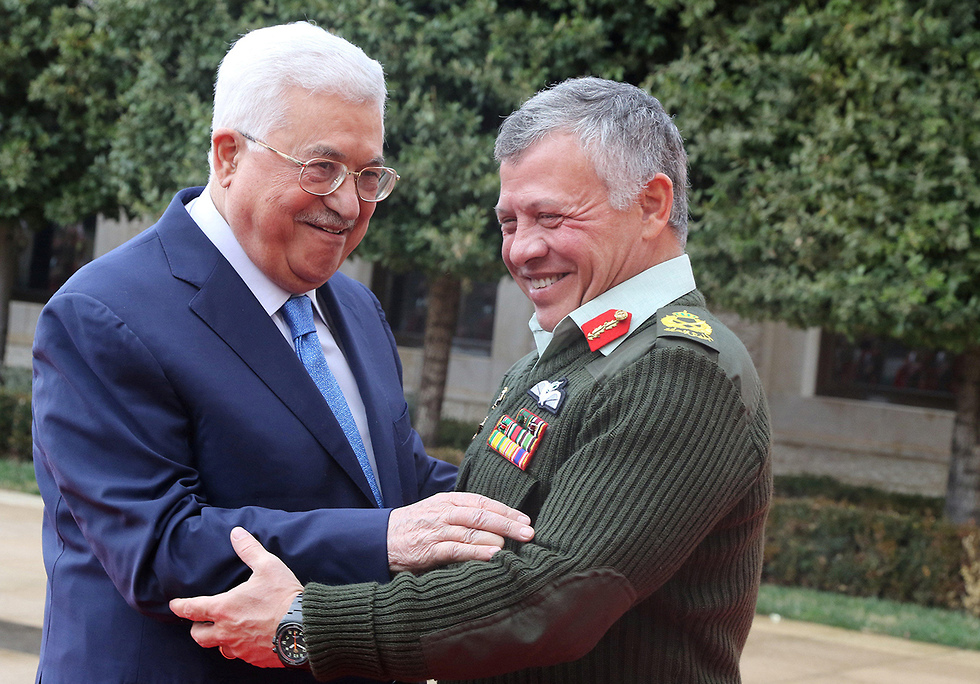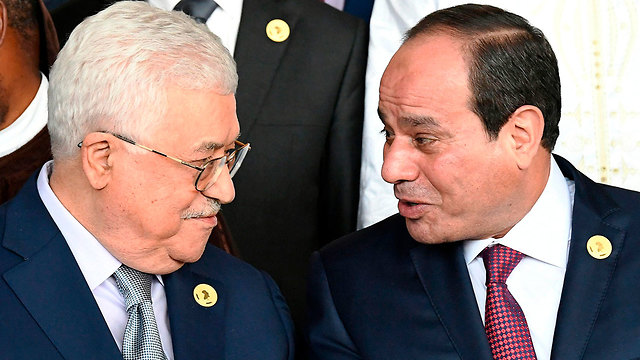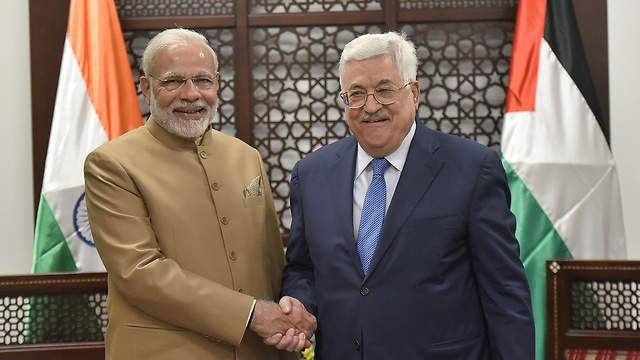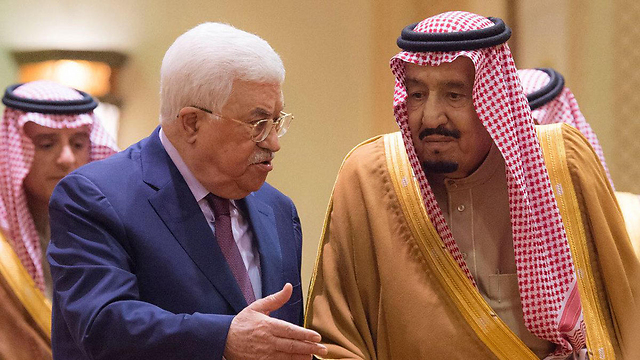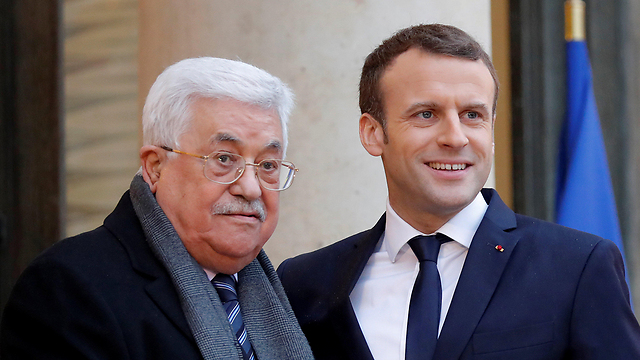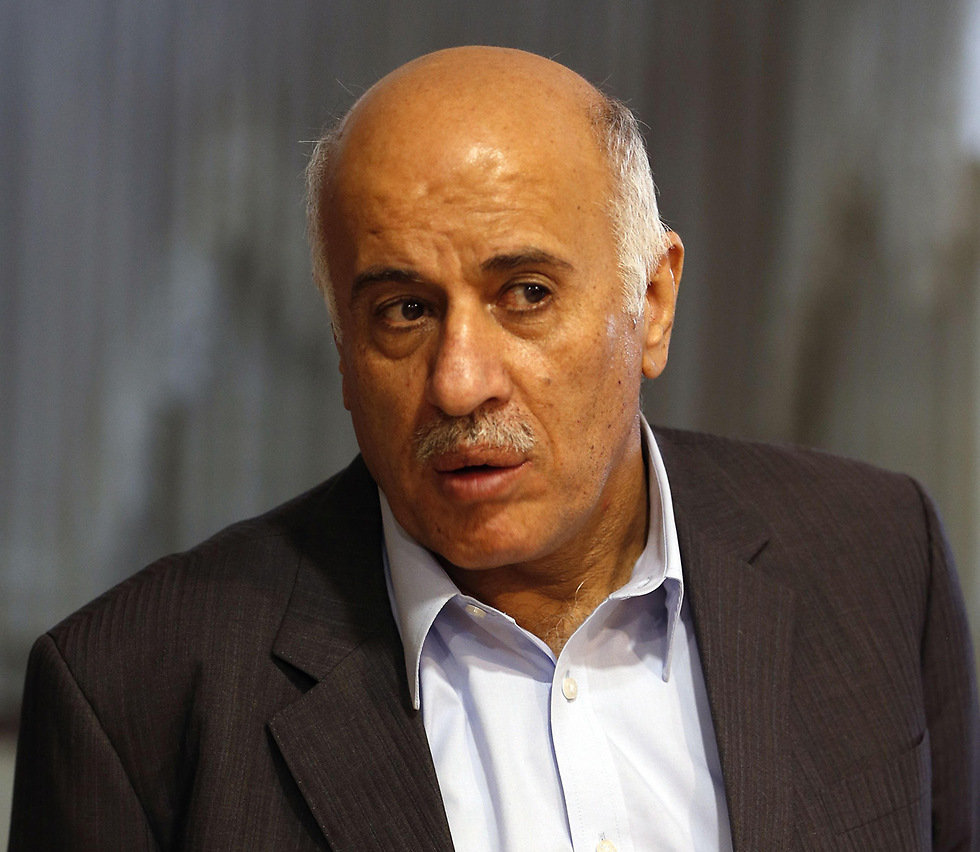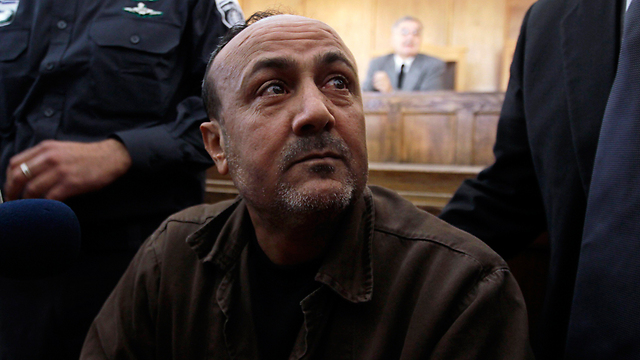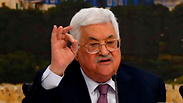
Palestinian leader's health scares spark succession talk
Palestinian sources say heart specialist present at Ramallah presidential compound whenever Abbas is there, while his regular physician visits daily; Abbas is said to be regularly complaining about strong stomach pains, but aides deny rumors he's suffering from cancer.
RAMALLAH - A series of recent health scares have raised new concerns about octogenarian President Mahmoud Abbas, reviving anxiety about a potentially chaotic, and even bloody, succession battle that is bound to further weaken the Palestinian cause.
In the latest sign of Abbas' health troubles, officials and medical sources say a cardiologist has moved into the presidential compound in Ramallah to monitor the longtime leader.
The move follows a mysterious hospital visit in the United States after Abbas appeared weak in an address to the United Nations Security Council.
Abbas, a heavy smoker with long-standing heart problems who turns 83 next week, insists he is fine. But after more than a decade of avoiding discussion of the post-Abbas era, Palestinian officials acknowledge that they are concerned, and potential successors are quietly jockeying for position.
The topic of succession has been taboo in Palestinian official circles since Abbas took office 14 years ago. Abbas took over as a caretaker leader following the death of Palestinian leader Yasser Arafat in 2004, and was elected for what was supposed to be a five-year term the following year. He has remained in firm control since then, refusing to designate a successor while a political split with rival Hamas prevented new elections.
Abbas has a long history of health issues, ranging from his heart troubles to a bout with prostate cancer a decade ago. Last summer, he underwent a health checkup at a Ramallah hospital and separately, dispelled rumors he had suffered a stroke. Two years ago, he underwent an emergency heart procedure after suffering exhaustion and chest pains. He suffers from arterial plaque and has had stents implanted.
Concerns deepened after Abbas' February 20 appearance before the UN Security Council, where he appeared to struggle for breath at times.
After the speech, he traveled to Baltimore for a series of tests at Johns Hopkins Hospital. Feeling fatigued, Abbas then decided to return to the West Bank rather than continue on to Venezuela, as initially planned, according to three Abbas aides who spoke on condition of anonymity because they are under strict orders not to discuss his health.
It was rare for the globe-trotting Abbas to cancel a planned trip.
Abbas said after his return that the medical tests conducted in the US yielded "positive and reassuring" results, but did not elaborate.
A Palestinian official and two medical sources said a heart specialist is now present at the presidential compound whenever Abbas is there. Abbas' regular physician visits the compound every day as well.
The medical sources spoke on condition of anonymity because they were not authorized to discuss Abbas' health. One said he requires medication and close attention.
Aides said Abbas complains of strong stomach pain and has told his staff this is a result of stress and anger—two triggers doctors told him to avoid. They said rumors that he is suffering from cancer are not true.
The health scares come at an especially difficult time.
Abbas took office promising to lead the Palestinians to independence with a message of nonviolence. Fourteen years later, he has little to show for his efforts.
Several rounds of peace talks have failed, and relations with the US are at a low point following President Donald Trump's recognition last December of Jerusalem as Israel's capital.
The Palestinians, who seek east Jerusalem as their capital, have accused Trump of siding with Israel on the most sensitive topic in the conflict and have largely frozen ties with the White House ahead of an expected US peace plan.
Abbas' frustration boiled over in a speech on Monday in which he called Trump's ambassador to Israel, David Friedman, a "son of a dog" because of his support for Israel's West Bank settler movement.
Abbas' self-rule government, the Palestinian Authority, has suffered from chronic financial woes, and has been unable to regain control of the Gaza Strip, which was overrun by the terror group Hamas in 2007.
Last week, an explosion struck the convoy of Abbas' prime minister and security chief while they visited Gaza. Abbas has accused Hamas of being behind the blast and threatened to take tough new measures to further squeeze the financially strapped terror group until it yields power.
An opinion poll released this week found that 68 percent of the Palestinian public wants Abbas to resign, and just 33 percent of those surveyed said they were satisfied with his performance.
The poll, conducted by the respected Palestinian Center for Policy and Survey Research, surveyed 1,200 people and had a margin of error of 3 percentage points.
A number of top officials in Abbas' Fatah movement head the list of potential successors.
Jibril Rajoub, a former security chief, and Mahmoud Aloul, a veteran Fatah leader, are both members of the party's decision-making Central Committee.
Abbas' current security chief, Majed Farraj, is another strong contender, with good behind-the-scenes working relations with both Israel and the US.
Marwan Barghouti, a former Palestinian uprising leader serving multiple life sentences in Israeli prison, tops public opinion polls. But his incarceration would pose a strong obstacle to him taking office.
Mohammed Dahlan, an exiled rival of Abbas who now lives in the United Arab Emirates, also enjoys some support, but the local leadership opposes him.
For now, Abbas refuses to designate a successor. That could set the stage for bitter and potentially violent infighting down the road.
Whoever ultimately emerges as the next Palestinian leader will have little to inherit, analysts say.
Ghassan Khatib, a former Cabinet minister, said that for all of his shortcomings, Abbas served as a unifying figure and will be hard to replace.
"The Palestinian Authority is eroding and dying," said Khatib. "There is no election, no changes, and the gap with the people is getting wider and wider."










